
4.1 Belajar Python mengenal operator aritmatika untuk pemula YouTube
6. Python Special operators. Python language offers some special types of operators like the identity operator and the membership operator. They are described below with examples. Identity operators. In Python, is and is not are used to check if two values are located at the same memory location.

Operator aritmatika python Bag 3 YouTube
00:09 There are seven arithmetic operators in Python, which are all binary, meaning they take two arguments each. Both arguments of an operator are often called its operands. For example, the + (plus) operator adds the left operand, 5, to the right operand, 2. 00:26 In Python, it's customary to surround operators like this with a single space.
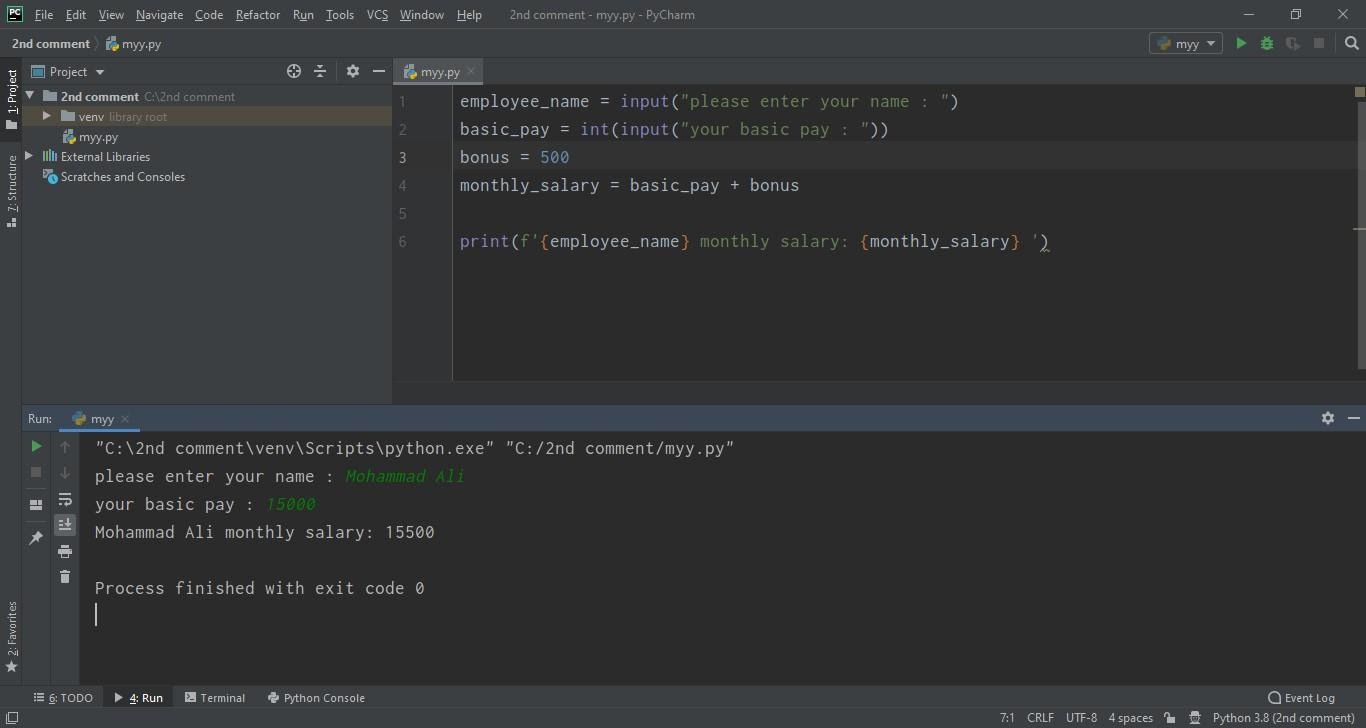
How to use Arithmetic Operators in Python The Engineering Projects
Python. if index % modulus == 0: print() This code takes the current iteration index and, using the modulo operator, compares it with modulus. If the result equals 0, then it can run interval-specific code. In this case, the function calls print () to add a newline, which starts a new row.

Arithmetic Operators in Python Operators in Python Example
Operator-operator Dasar. Di python kita dapat memanipulasi nilai dari operand, caranya adalah dengan memberikan operator pada operand tersebut. Sebagai contoh: 1+2=3, 1 dan 2 disebut sebagai operand sedangkan + disebut sebagai operator. Berikut ini adalah operator-operator yang digunakan pada Bahasa pemrograman python:

[Dasar Pemrogramman ] Operator Aritmatika Python 3a YouTube
1. Operator Aritmatika. Operator aritmatika adalah jenis operasi matematis seperti penjumlahan, pengurangan, pembagian, perkalian, sisa bagi dan juga pemangkatan. Operator aritmatika ini juga merupakan operator yang paling sering digunakan dalam bahasa pemrograman manapun termasuk python. Berikut simbol yang digunakan pada operator aritmatika
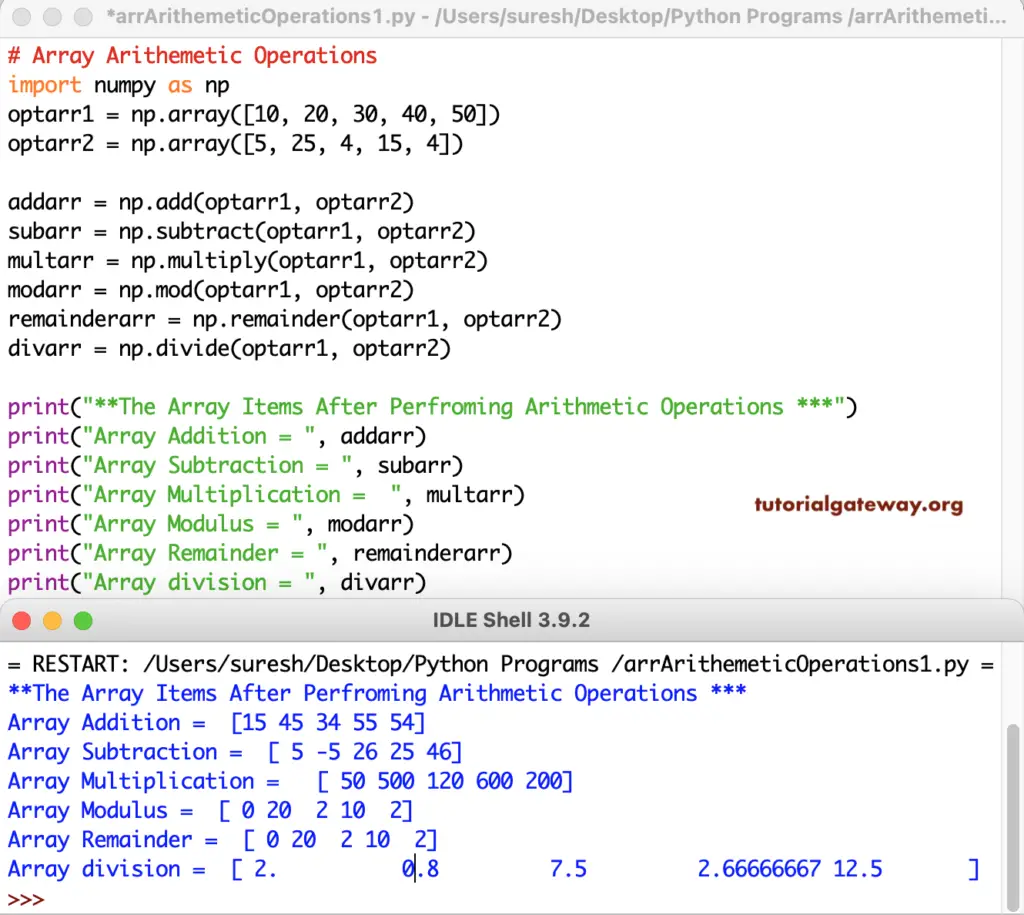
Python Program to Perform Arithmetic Operations on Array
You can do this safely by using in-built operator package, and using globals.. Python also comes with an interpreter for a limited subset of Python in the f-string evaluator, and as jedwards' answer shows, there are readily-available interpreters for what are effectively similar languages to such a subset.

Belajar Python 07 Operator Aritmatika dan Logika YouTube
Last but not least, let's take a look at the power operator in Python. Power. In maths, power means to multiply a number by itself a number of times. For example: 3 2 means 3 * 3. 3 4 means 3 * 3 * 3 * 3. In Python, you can raise a number to a power using the power operator (**). x ** y.

Belajar Python [Dasar] 08 Operasi Aritmatika YouTube
A. Operator Aritmatika pada Python (Arithmetic Operators) Operator aritmatika adalah operator yang digunakan untuk melakukan perhitungan dengan operasi matematika dasar. Operator matematika di Python memiliki urutan yang sama dengan ilmu matematika. Berikut pengertian dan contoh penggunaan operator aritmatika pada python.
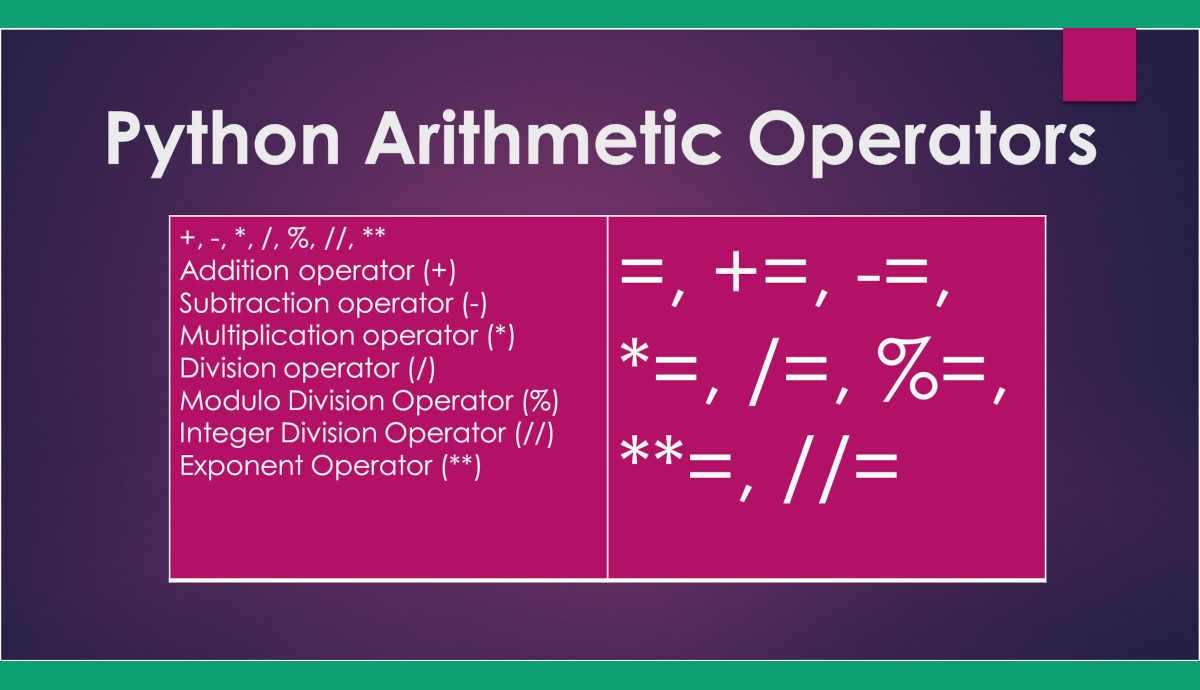
Python Arithmetic Operators and Priority Tutorial ExamTray
Bahasa Pemrograman Python mendukung berbagai macam jenis operator. Secara garis besar, Python memiliki tujuh jenis operator seperti operator aritmatika, pembanding, penugasan, logical, keanggotaan, identitas dan bitwise. Jenis-jenis operator tersebut akan kita bahas satu persatu pada artikel di bawah ini. Selamat belajar! 1. Operator Aritmatika

Python Arithmetic Operators Teaching Resources
Setelah kita mengenal variabel dan tipe data pada Python, selanjutnya kita akan berkenalan dengan Operator. Apa itu operator? Operator merupakan simbol-simbol yang digunakan untuk melakukan operasi tertentu. Ada enam jenis operator dalam pemrograman yang wajib diketahui: Operator Aritmatika Operator Pembanding/Relasi Operator Penugasan Opeartor Logika Operator Bitwise Operator Ternary Mari.

6 Tutorial Python Operator (Aritmatika, Penugasan, Perbandingan,Logika) YouTube
Of course, you can also control the processing order with parentheses (). This article explains the arithmetic operators in Python.For numbers, such as integers (int) and floating point numbers (float), you can perform basic arithmetic operations like addition, subtraction, multiplication, division, and exponentiation.

Operator aritmatika bahasa pemrograman python YouTube
Modulus Operator. In Python, % is the modulus operator. It is used to find the remainder when the first operand is divided by the second. Python3. val1 = 3. val2 = 2 # using the modulus operator. res = val1 % val2. print(res) Output: 1 Exponentiation Operator. In Python, ** is the exponentiation operator. It is used to raise the first operand.
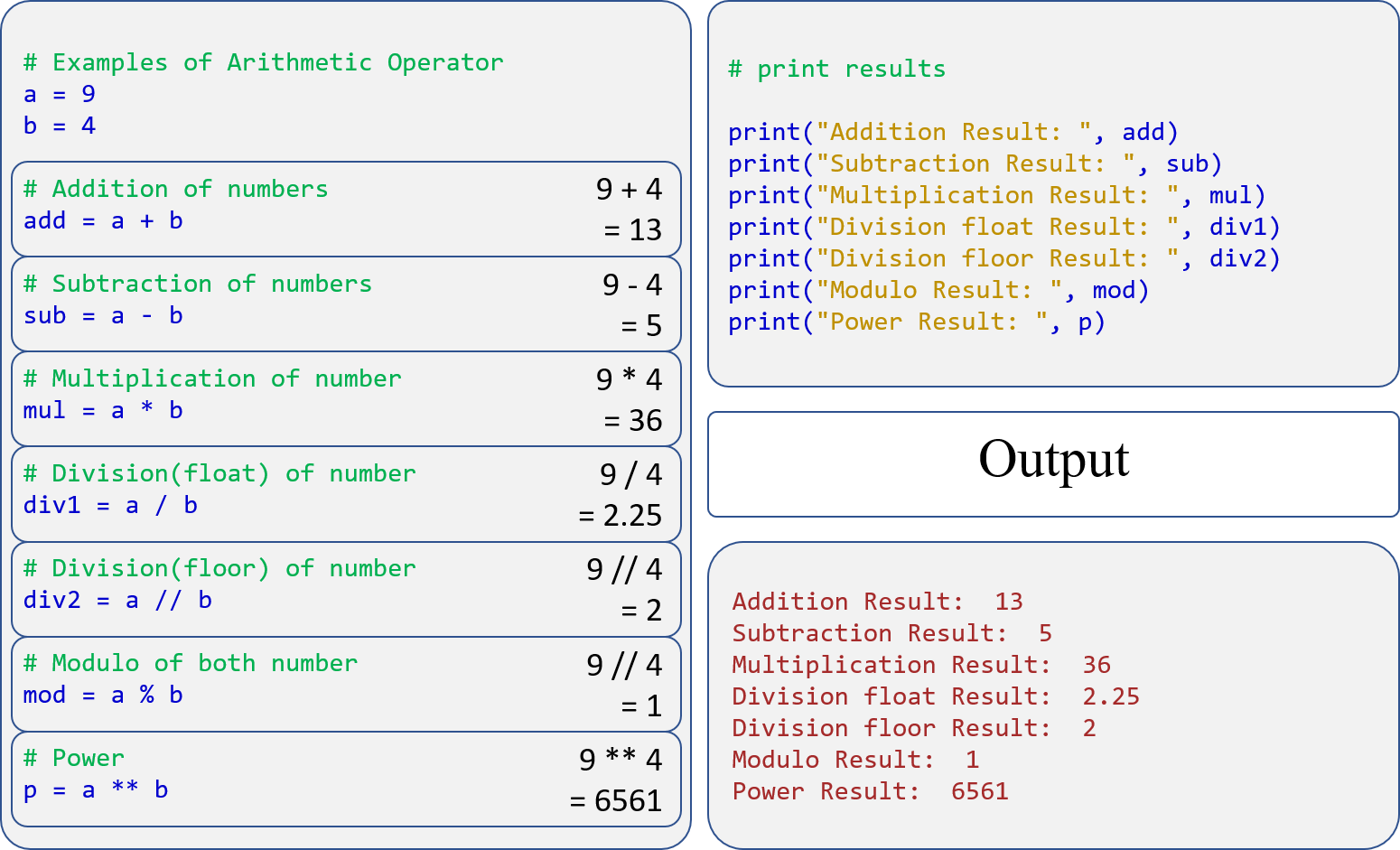
Arithmetic operators in Python atnyla
A compound statement is a construct that occupies multiple logical lines, such as a for loop or a conditional statement. An expression is a simple statement that produces and returns a value. You'll find operators in many expressions. Here are a few examples: Python. >>> 7 + 5 12 >>> 42 / 2 21.0 >>> 5 == 5 True.

Python Operators
In-place Operators¶. Many operations have an "in-place" version. Listed below are functions providing a more primitive access to in-place operators than the usual syntax does; for example, the statement x += y is equivalent to x = operator.iadd(x, y).Another way to put it is to say that z = operator.iadd(x, y) is equivalent to the compound statement z = x; z += y.

Program Operator Aritmatika Pada Python YouTube
Arithmetic operators are used with numeric values to perform common mathematical operations: Operator. Name. Example. Try it. +. Addition. x + y. Try it ».
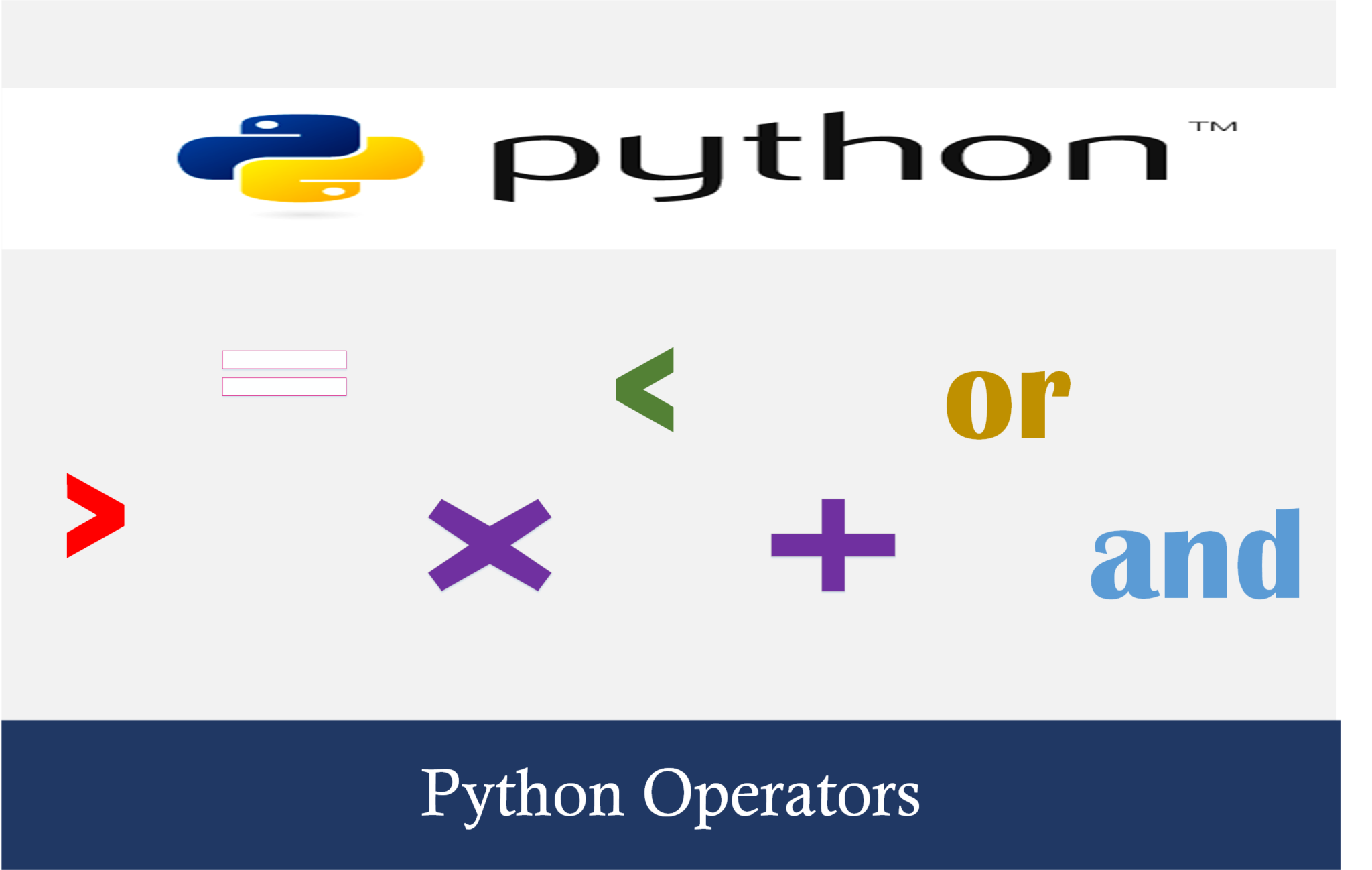
Python Operators (Arithmetic, Logical, Relational, Assignment & Bitwise)
Python Arithmetic operators are used to perform basic mathematical operations like addition, subtraction, multiplication, and division. In Python 3.x the result of division is a floating-point while in Python 2.x division of 2 integers was an integer. To obtain an integer result in Python 3.x floored (// integer) is used.